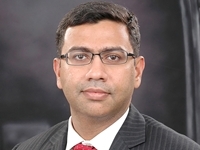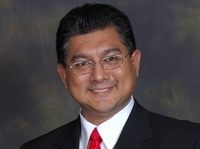Singapore
Roles of the modern CFO in Asia
Last month, accountants and finance professionals from all over Singapore gathered at the ACRA Public Accountants’ Conference “Transitioning from Value Protection to Value Creation” to discuss the latest issues facing the profession. One of the big themes examined, and the main topic at an ICAEW-led discussion, was how finance professionals can develop as business leaders. At first glance, leadership may be associated more with management bodies, but this is not always the case. Firstly, as one of the oldest accountancy bodies, ICAEW has been training future business leaders for generations. Secondly, and more importantly, leadership roles and the need for leadership skills within organisations are evolving rapidly. Few economies are as well-placed to experience this as 21st-century Singapore. In the World Bank ‘Doing Business’ Survey 2011, Singapore retained top spot as the most advantageous place in the world to operate, but developed economies cannot afford complacency. Emerging nations are fast developing and, as they industrialise, providing increasing competition. This is why the emphasis is shifting towards developing knowledge- and skills-based economies. Singapore is already one of the leading financial services hubs in the world, and the influx of Chinese, Indian and Middle Eastern companies listing their companies on the Singapore stock exchange (SGX) suggests this trend will continue. But in order to take advantage of the changing economic climate, Singapore will need ever greater numbers of business leaders with financial expertise. The modern CFO As markets have globalised and as the pace of commerce has increased, the nature of leadership has changed for successful companies. This is particularly evident in the role of the Chief Financial Officer (CFO). CFOs used to be primarily technical financial experts. In the 21st century, technical expertise is still a vital skill, but the job demands wider abilities. Firstly, a good CFO must be a good supporting business partner for the Chief Executive. The best CFOs are highly trusted advisors, and this relationship lies at the core of successful organisations. For it to work takes not only excellent people skills, but also the ability to empathise and influence, which depends on having a good grasp of the CEO’s priorities and needs. Strategic thinking This means CFOs also need a firm understanding of strategy, enabling them to identify strategic problems and challenge where necessary. This is not just important for the CEO relationship but also when dealing with the Board. CFOs have sometimes attracted unfair reputations as ‘no men’ because they have the power to block projects. However, the ability to see where a proposal could offer revenue opportunities is part of a good CFO’s portfolio. The key is combining the financial acumen with cool strategic planning to identify which opportunities are in tune with the organisation’s direction and which should be avoided. Effective communication creates credibility In order to influence the CEO, Board and colleagues, as well as setting out good strategic decisions, it is critical a CFO can communicate effectively. This is also important for external relations. CFOs need to be able to build strong relationships with stakeholders like investors, analysts, bankers and regulators and effective communication is a large part of this. Building these relationships helps create and demonstrate credibility inside and outside of the organisation and is part of building up a strong leadership profile. Leading from the front Whilst relationship building, communications and strategy are critical assets for good leaders, the best leaders are more than this. Great leaders are able to inspire employees and colleagues and are not afraid to get stuck in when necessary. This means being able to take responsibility, make strong decisions and being prepared to embrace innovation and lead change. But at the same time, it is important to remain objective and independent and to carefully manage risk. This might sound like an impossible, and maybe even contradictory, task. In practice, it takes experience and hard work, which is why the path to business leadership needs to begin early. Preparing to lead Professional development is always a continuous process, but not all skills can be accrued simply through experience. When the skills needed to enhance career progression (such as communication, external relationship-building or strategy) are not tested in the course of a professional’s current role, extra opportunities to engage and stretch these skills are essential. This is one reason bodies like ICAEW offer leadership programmes to members at any stage of their career. Many finance professionals have the abilities necessary to become great business leaders, but these need to be developed through mentoring, peer-to-peer and cross-industry learning, which can place their skills in context and allow them to grow. Early engagement is a great way to lay the foundations for a fast-tracked career path to management. Leading the way As China and India show evidence of ever-increasing economic growth, the ASEAN nations are presented with both a challenge and an opportunity. On the one hand it could be easy to see the strong emergent economies as a threat, but for skills-based business-friendly economies, the growing need for financial and professional services could present a number of opportunities. In order to achieve this, business leadership skills are essential.
Roles of the modern CFO in Asia
Last month, accountants and finance professionals from all over Singapore gathered at the ACRA Public Accountants’ Conference “Transitioning from Value Protection to Value Creation” to discuss the latest issues facing the profession. One of the big themes examined, and the main topic at an ICAEW-led discussion, was how finance professionals can develop as business leaders. At first glance, leadership may be associated more with management bodies, but this is not always the case. Firstly, as one of the oldest accountancy bodies, ICAEW has been training future business leaders for generations. Secondly, and more importantly, leadership roles and the need for leadership skills within organisations are evolving rapidly. Few economies are as well-placed to experience this as 21st-century Singapore. In the World Bank ‘Doing Business’ Survey 2011, Singapore retained top spot as the most advantageous place in the world to operate, but developed economies cannot afford complacency. Emerging nations are fast developing and, as they industrialise, providing increasing competition. This is why the emphasis is shifting towards developing knowledge- and skills-based economies. Singapore is already one of the leading financial services hubs in the world, and the influx of Chinese, Indian and Middle Eastern companies listing their companies on the Singapore stock exchange (SGX) suggests this trend will continue. But in order to take advantage of the changing economic climate, Singapore will need ever greater numbers of business leaders with financial expertise. The modern CFO As markets have globalised and as the pace of commerce has increased, the nature of leadership has changed for successful companies. This is particularly evident in the role of the Chief Financial Officer (CFO). CFOs used to be primarily technical financial experts. In the 21st century, technical expertise is still a vital skill, but the job demands wider abilities. Firstly, a good CFO must be a good supporting business partner for the Chief Executive. The best CFOs are highly trusted advisors, and this relationship lies at the core of successful organisations. For it to work takes not only excellent people skills, but also the ability to empathise and influence, which depends on having a good grasp of the CEO’s priorities and needs. Strategic thinking This means CFOs also need a firm understanding of strategy, enabling them to identify strategic problems and challenge where necessary. This is not just important for the CEO relationship but also when dealing with the Board. CFOs have sometimes attracted unfair reputations as ‘no men’ because they have the power to block projects. However, the ability to see where a proposal could offer revenue opportunities is part of a good CFO’s portfolio. The key is combining the financial acumen with cool strategic planning to identify which opportunities are in tune with the organisation’s direction and which should be avoided. Effective communication creates credibility In order to influence the CEO, Board and colleagues, as well as setting out good strategic decisions, it is critical a CFO can communicate effectively. This is also important for external relations. CFOs need to be able to build strong relationships with stakeholders like investors, analysts, bankers and regulators and effective communication is a large part of this. Building these relationships helps create and demonstrate credibility inside and outside of the organisation and is part of building up a strong leadership profile. Leading from the front Whilst relationship building, communications and strategy are critical assets for good leaders, the best leaders are more than this. Great leaders are able to inspire employees and colleagues and are not afraid to get stuck in when necessary. This means being able to take responsibility, make strong decisions and being prepared to embrace innovation and lead change. But at the same time, it is important to remain objective and independent and to carefully manage risk. This might sound like an impossible, and maybe even contradictory, task. In practice, it takes experience and hard work, which is why the path to business leadership needs to begin early. Preparing to lead Professional development is always a continuous process, but not all skills can be accrued simply through experience. When the skills needed to enhance career progression (such as communication, external relationship-building or strategy) are not tested in the course of a professional’s current role, extra opportunities to engage and stretch these skills are essential. This is one reason bodies like ICAEW offer leadership programmes to members at any stage of their career. Many finance professionals have the abilities necessary to become great business leaders, but these need to be developed through mentoring, peer-to-peer and cross-industry learning, which can place their skills in context and allow them to grow. Early engagement is a great way to lay the foundations for a fast-tracked career path to management. Leading the way As China and India show evidence of ever-increasing economic growth, the ASEAN nations are presented with both a challenge and an opportunity. On the one hand it could be easy to see the strong emergent economies as a threat, but for skills-based business-friendly economies, the growing need for financial and professional services could present a number of opportunities. In order to achieve this, business leadership skills are essential.
What your bill design says about you
Companies are constantly giving themselves makeovers, reinventing themselves in some way. It may be changing a logo, re-branding a website, hiring a new spokesperson, or a new design for a catalogue and billing statement. Trends and consumers are constantly evolving and companies must keep up to evolve with their customers. Some elements of each brand may be timeless, but there are always variable factors which must transform and adapt to the consumer. Is this a sign of weakness within the company? Certainly not, even the most successful companies have done so. Take for example one of the most successful fast-food restaurants, McDonald’s, which spent more than one billion dollars to revamp themselves to a more upscale image. The company is investing in a shift from a stop-and-go-eating establishment to a more comfortable atmosphere where customers may want to stay longer to use Wi-Fi or socialize with friends. The strategy is to create a different and more memorable experience than McDonald’s competitors, like Burger King and Wendy’s. What these adjustments indicate is that McDonald’s is committed to changing customer perception. Another way companies can transform their brand recognition is by changing the way they communicate with customers. Using Precision Marketing tactics to improve communications isn’t a new technique – as customer specific messaging has been proven to work albeit infrequently executed. Find companies that will work with its utility customers to revamp their monthly customer statements to better meet customer needs. They will refresh the look and the feel by adding colour, graphs and visual elements to show customer usage patterns, and icons for each service (water, electric, gas) – making the bill easy to follow and understand. The main objectives are: to improve clarity of the information; in turn reducing call inquiries by 20 percent; influence customer behaviour to reduce energy consumption and emissions; and lower the cost of statement operations through process automation. The overall goal was to influence customer behaviour to keep costs low, while better serving the customer’s communication needs. Although it may not be as global an exterior makeover as McDonald’s, a bill redesign can be just as successful in term of return on investment. The way organizations communicate to customers is a key factor in how they are being perceived and may be the most personal experience some customers have with the company. Bottom line is, companies do not need to splurge on the way they look if they can’t even get the basics right! Just communicate with them effectively.
How is business intelligence valuable for SMEs?
Countries in the Southeast Asian region have huge communities of small-to-medium scale enterprises (SMEs), many of whom employ thousands of workers and contribute to their GDP. In fact, most Southeast Asian countries have more SMEs as registered businesses than large enterprises. The Association of Southeast Asian Nations (ASEAN) puts the number of SMEs at 96% of all enterprises and employing up to 85% of overall workforce. SMEs also account for up to 30% of exports and contribute around 50% of GDP.
No time to think? Think again.
Stop and think for a moment. Yes, think. We don't do enough of it.
Do you have what it takes to become a leader?
The New Realities: Results-Based Leadership We are operating in a hypercompetitive business environment. The world moves faster today when compared to 10 years ago. Companies feel the pressure to decrease time to market and improve the quality of products while delivering on ever-changing customer expectations to maintain competitive posture – that is, be adaptive and nimble. Driving results is difficult even for companies who have the benefit of dedicated and knowledgeable employees and business leaders to leverage. In the early years leadership studies, the so-called “trait theory” took the view that there is a set of traits that separates the leader from the pack. Traits purported to be characteristic of leaders included intelligence, a drive to dominate others, being extroverted and having charisma. Today, people often point to the importance of emotional intelligence in achieving leadership effectiveness.
How to make more ‘Zuckerbergs’
Who belongs to Generation Y? Born between 1980 and 2000, Generation Y provides the newest entrants to the workplace. This is the largest generation since the Baby Boomers and will exert even more influence. This is a generation celebrated for its confidence, dedication to equality in the workplace and global perspective. Growing up with digital technology, their numbers and unique characteristics mean that they have a huge impact on society – not least, on employment patterns.
SGX revenues increased to $661m in FY2011 from $640m last year
And the recorded net profit was $295 million.
Ka-ching! Tourist retail up 35.7% to an incredible $4.98b
But continued appreciation of Sing dollar may impact inbound tourist numbers as well as spending.
Asia’s rising middle class to reach an amazing 1.7b in 2020
And you’ll never guess what you can find in their shopping bags.
Radiant real estate: 70% of investors to expand property portfolio
And 68% expect higher market returns over the next 12 months.
Singtel takes 3-year lease at JCube for $1.4m
And Temasek will also take up additional office space at The Atrium@Orchard, according to CapitaMall Trust.
Singapore needs some sexual healing
Singapore is one of the most family orientated countries in the world. As a result of that, the fertility rate is actually decreasing its natural population. It’s not that Singaporean’s are off sex, they’re just off sex that leads to babies. Singapore has one of the lowest fertility rates in the world. It basically loses 1.5% of its Singaporean population every year. If it wasn’t for the ever increasing number of foreigners, (especially, ironically, the Chinese that make up the 20% of the country), then the population would not only have shrunk but they would not have enough people to be able to sustain their fantastic economic growth and lead the way in Asia and the world as a super economy and dynamic city state. There are many reasons why it’s hard for Singaporean’s to have sex. Like many Asian countries that are very family focused. Young Singaporean’s usually live with their parents until they either get married or they become millionaires (you need to be a dollar millionaire to be able to own a flat/house in Singapore!). They view renting as a waste of money and would rather live at home with their parents than rent and have that much needed privacy. It’s therefore not an especially conducive environment for becoming intimate with your partner with your parents downstairs/next door…! This is why the “staycation” has been invented in Singapore. A bit like the Japanese “love hotels” Singaporean’s regularly stay in hotels in Singapore to get that much needed privacy, space and break from their family. It’s a great source of income for Singaporean hotels who position themselves as an all inclusive romantic location for couples wanting to have some “alone” time. It’s also partly a selfish attitude that is found more and more in western countries too. Singaporeans like their luxury goods and brands and spend a great deal of their money on shopping and their friends. There’s no time for babies. There are more luxury malls in Singapore per population than anywhere else in the world. The government though are seriously looking into this growing problem and are looking at initiatives to help reverse the trend and encourage a baby boom. In the recent election many Singaporean’s complained that there were too many foreigners in the country and when they were told by the Government that that they then had to have more babies to make the difference it caused some interesting exchanges. I think that they actually need a series of aggressive strategic brand partnerships with brands ranging from hotels for those romantic Singaporean stay-cations to wine and candles, cinemas and travel brands for those romantic weekends away. They also need cheaper housing and to encourage 20 and 30 something’s to leave home, something that they are reluctant to do both culturally and financially. The government clearly need to tell their young people to go and have more sex….on them! I wouldn’t suggest a brand partnership with Durex though!
Does your company have an effective risk transfer program?
Following the global financial crisis, organisations are seeking new ways to reduce costs while still retaining their service and corporate governance standards. This has led many companies to review their spending to ensure they are getting value for money.
What you need to know before accepting a job
As the war for talents continue to heat up in Singapore, many organizations are becoming more creative in their approach to fill up their vacancies. It is no longer just about the job. It became everything else. Things have escalated to an employee courtship. Creating employer branding, making applicant feel special, allocating expensive floor space for swanky chill-out areas in the office are just the tip of the iceberg. As a job seeker, you need to peel away the layer of marketing barrier to get to the core of the position.
Singapore’s onboarding blind spot
Many organisations in Singapore have a blind spot post-hiring, but a well-considered onboarding program can correct it and help make sure new employees stay the course.
Do you have a business or a brand?
Just because you have a trademarked brand name does not mean that you have a brand. I make a strong distinction between a brand and business because while both of them are there to make money for their owners, they are structurally very different.
SMEs' giant role in the global market
The common picture of SMEs is that of a sector battered by recession, overlooked by governments, and starved of credit by banks. Many small business organisations propagate this image – after all, they exist to generate more support for their members.


















 Advertise
Advertise


















